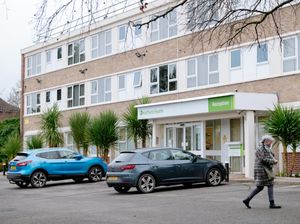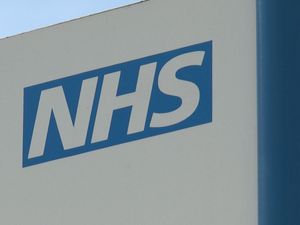Private hospitals should be part of solution for the NHS - Shrewsbury MP
Shrewsbury MP Daniel Kawczynski says hospitals in the private sector can help the NHS.

We owe our NHS an immense debt of gratitude for its work during the Covid-19 pandemic, writes Daniel Kawczynski MP.
When the virus was spreading throughout the country, the NHS was there for everyone who needed urgent care.
I know from my discussions with doctors and nurses how their overall efforts helped to save thousands of lives.
At the time of this crisis, the NHS was supported in its mission by the independent sector, whose capacity allowed NHS hospitals to focus on treating Covid-19 patients.
In my constituency, the Nuffield Hospital took on huge numbers of operations from the Royal Shrewsbury Hospital, allowing NHS patients to be treated more quickly.
Approximately 30 independent hospital groups made their total capacity available to the NHS on an at-cost basis when Covid-19 first took hold. The success of this historic collaboration between the NHS and the independent sector provides valuable lessons as we endeavour to reduce the current waiting list backlog.
Between March 2020 and March 2021, significant reductions to the NHS waiting lists were achieved by working in partnership with the independent sector carrying out over 3.2 million procedures. People requiring urgent surgery for conditions like cancer, could therefore access treatment in private hospitals, funded by the NHS.
Although the backlog created by the pandemic is lower than it would have been without the NHS/independent sector partnership, it is still there. Waiting lists in the NHS have been growing every month over the last two years, with more than one in 10 people in England waiting for treatment. This equates to over six million people, with some estimating that this figure could rise to 13 million. To ensure that the NHS can face the pressing healthcare challenges our country faces and to reduce waiting lists, we need however to do more by increasing capacity in the independent sector.
In 2020/21, Department of Health and Social Care expenditure stood at £192 billion, which is more than many countries spend on their entire budget for providing all services for their citizens. And in 2024, we will reach the point where 44 per cent of public funding is spent on providing healthcare. While the Health Secretary, Savid Javid, has announced financial support to tackle the backlog, including £36 billion in health and social care over the next three years, the question remains as to whether this will simply be enough.
What matters most is that patients receive world-class healthcare, free at the point of use, in a safe and clean environment and within a reasonable timeframe.
Looking forward, we must ensure that our health service is able not only to respond to any further infection outbreaks, but also treat patients requiring other urgent and routine operations.
Building on the collaboration we have seen during the pandemic, and within the right regulatory and taxation framework, private hospitals can provide this additional capacity.
Building the Nightingale Hospitals within nine days was an incredible show of British capability, and we should learn from this by increasing the estimated 515 private hospitals throughout the UK that can offer the space and facilities if needed again. If these hospitals were to focus on providing a limited number of operations, patients with life-threatening illnesses could be treated in a timely manner, preventing an increasing backlog of patients needing urgent care after the next healthcare crisis or the next pandemic.
I am confident that the record number of patients waiting for treatment are not concerned about whether their NHS-funded operation takes place in an NHS hospital or a private hospital.
The bottom line is that independent sector hospitals are there to support, aid and relieve pressure from the NHS – so let’s utilise this partnership by ensuring that we allow a major expansion of private sector hospitals.





